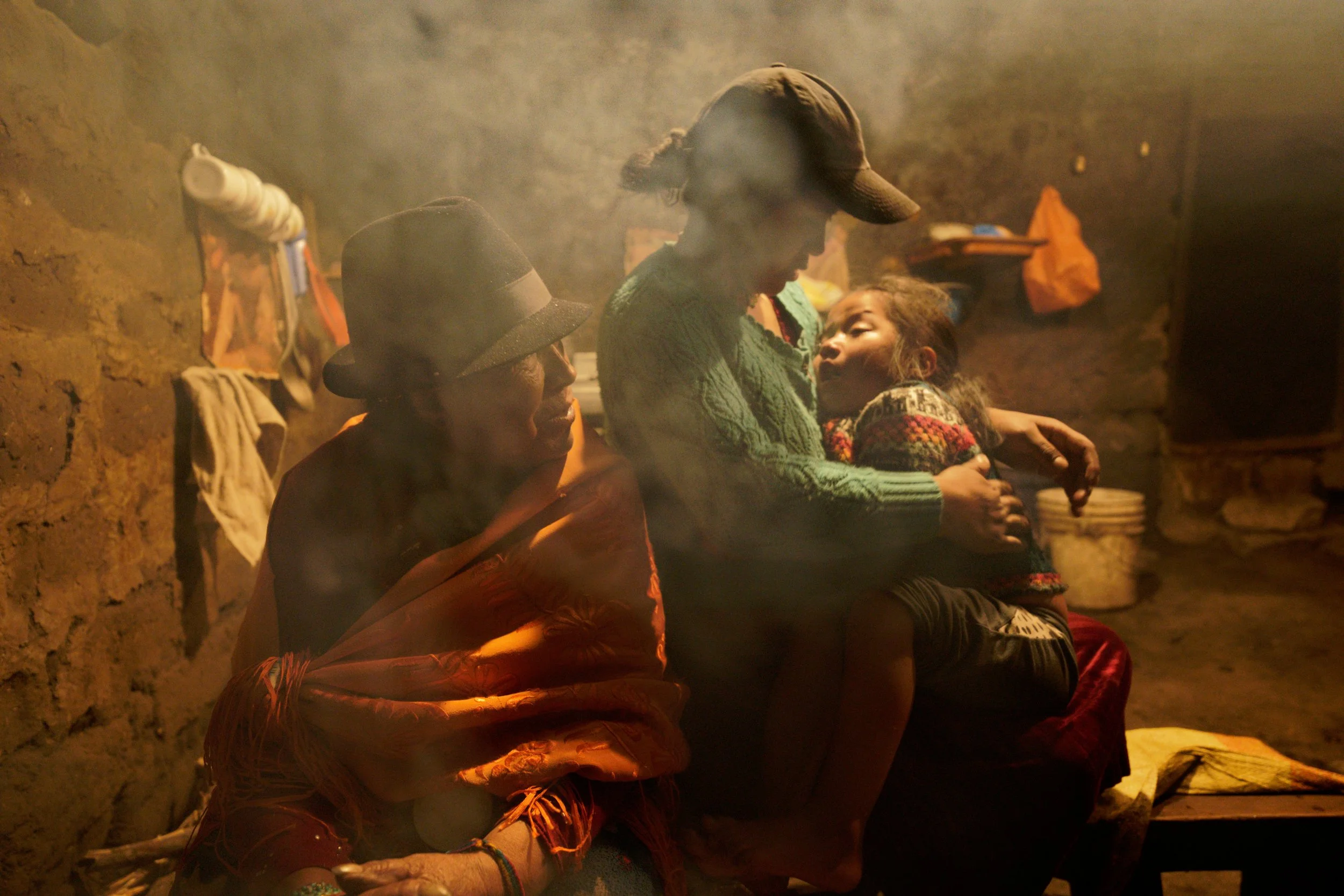Mama María Care and give life
Mamá María, an indigenous woman who has dedicated her life to caring for her land and her people, faced the pandemic with the same firmness with which she sows her crops: with deep roots in the knowledge of her ancestors. As the world was paralyzed by an unknown virus and hospitals collapsed, she turned to medicinal plants, infusions of wisdom passed down through generations and community midwifery to save lives. In her village, where access to Western medicine is limited, her practice was not only an act of resistance, but also of survival. However, despite their invaluable work, midwifery and traditional indigenous medicine continue to be invisibilized and even criminalized by a health system that does not recognize their legitimacy.



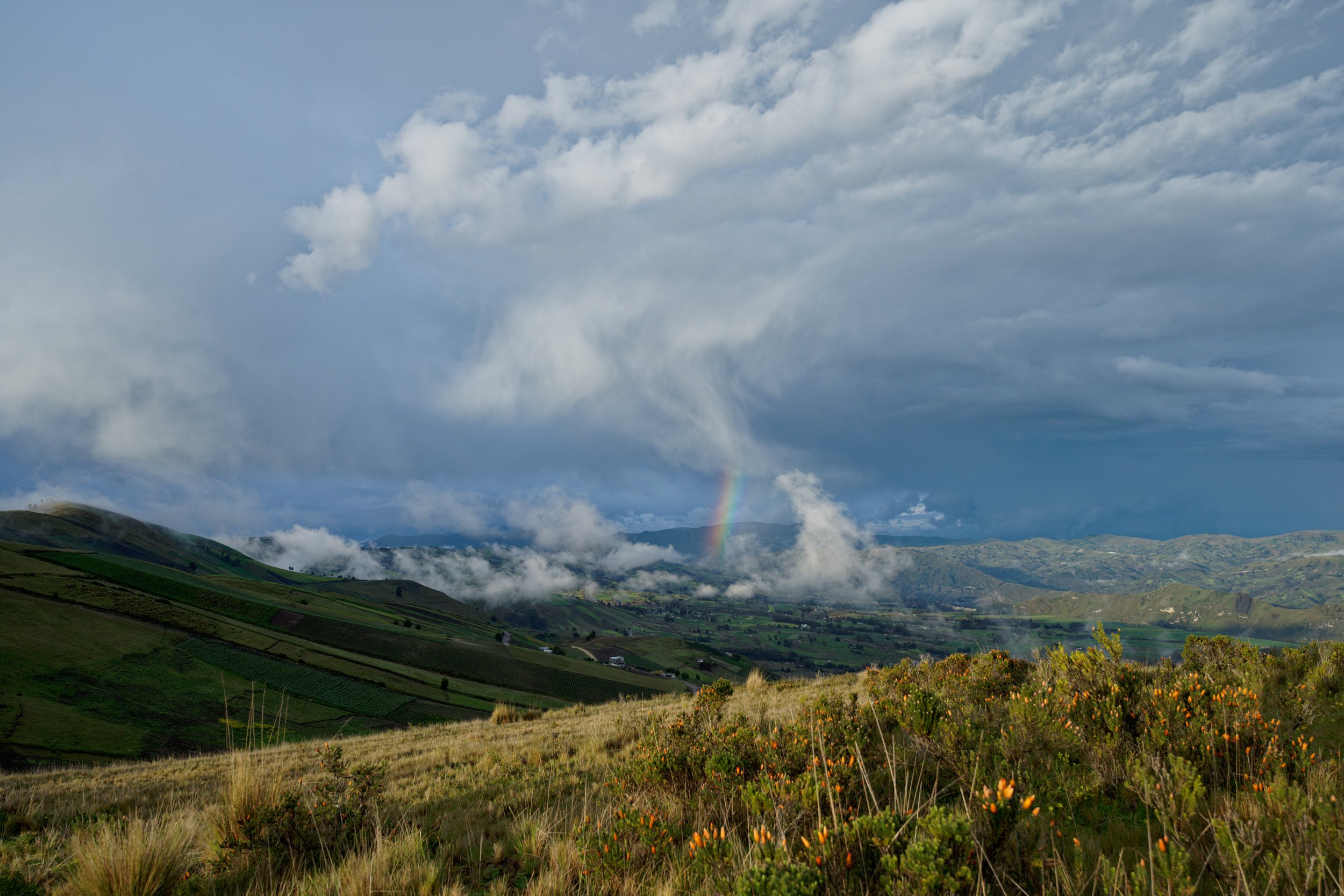




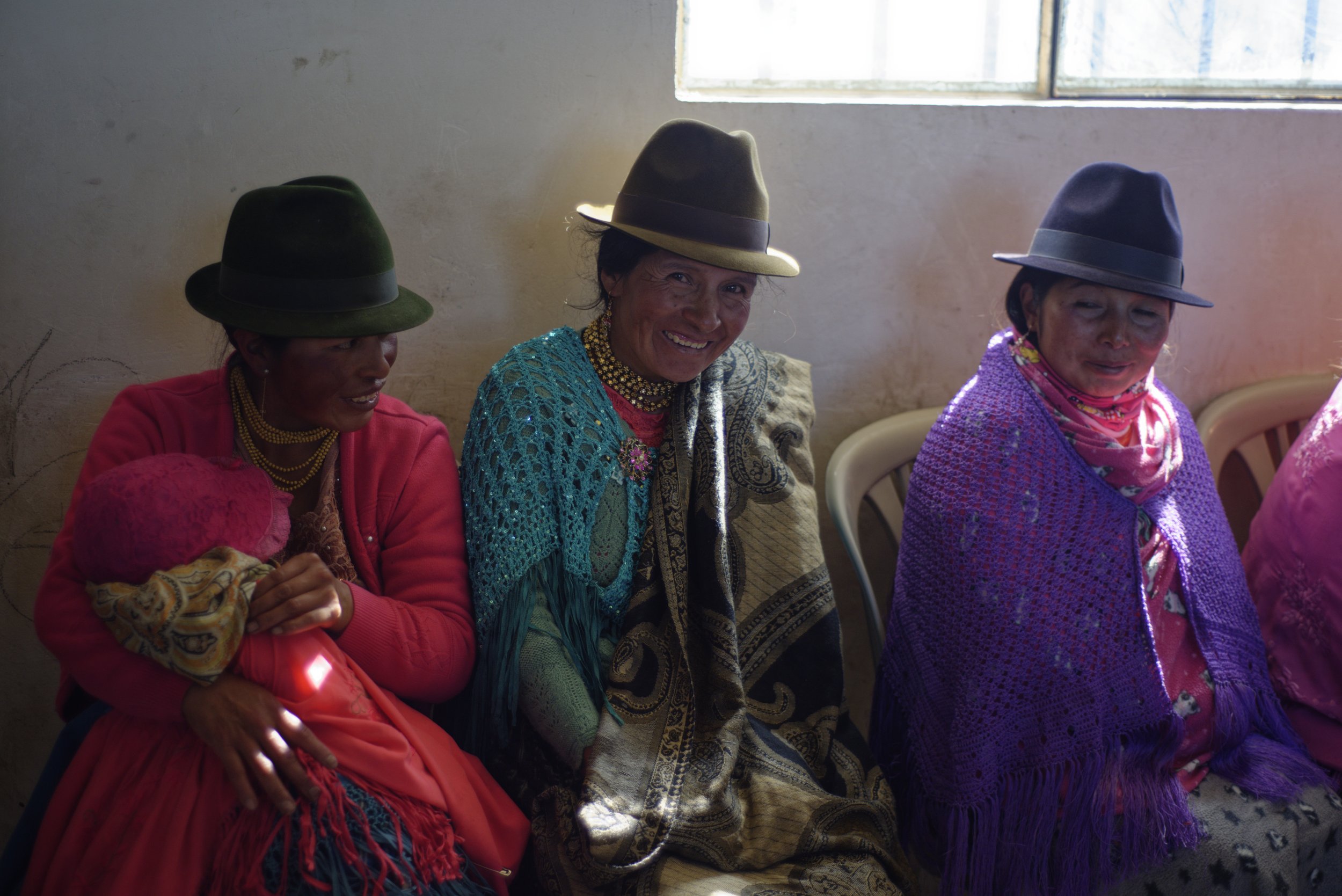
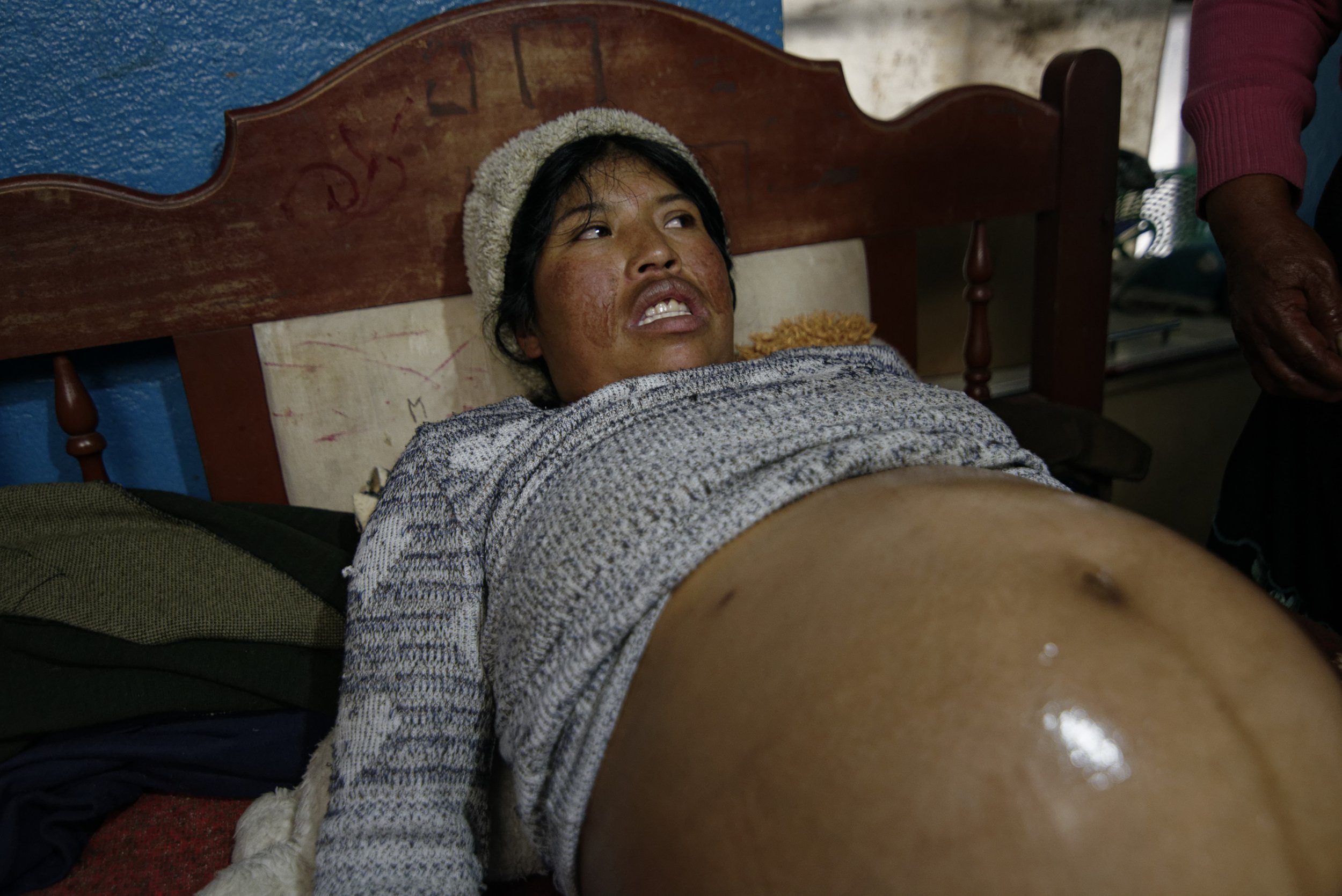

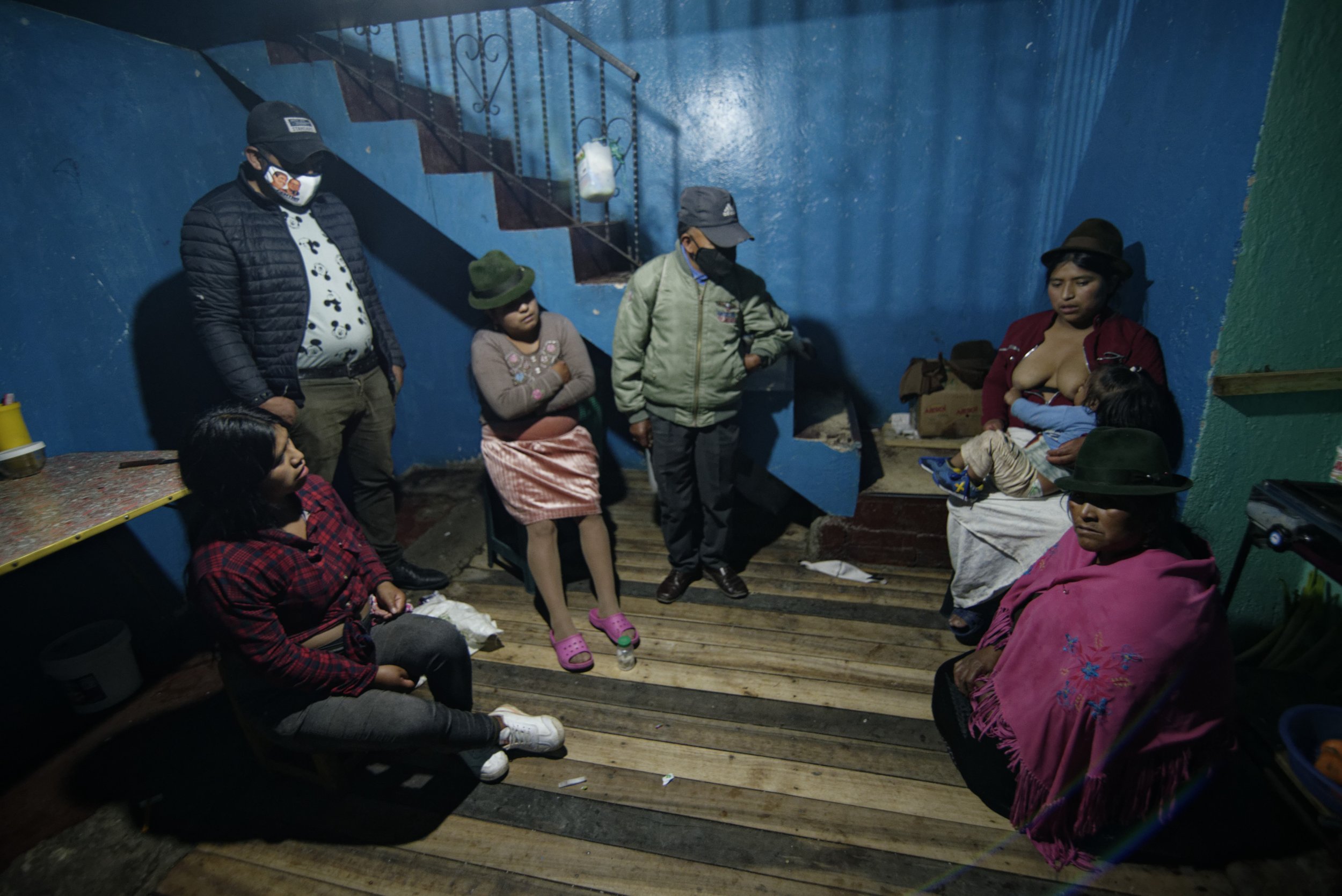

While the photographs capture frozen moments-her wrinkled hands holding medicinal herbs, her serene gaze in front of the stove where she prepares remedies, the rustling of the leaves as they are crushed in the pestle, the moans of relief of a sick person drinking her healing tea, the ancestral chants that accompany each birth she attends. They are sounds of resistance, of a silent struggle against the oblivion to which they would like to condemn her.
These images are not simple portraits, but windows into a living Andean world, where knowledge is transmitted in everyday gestures and where Mamá María's work stands as a political act of permanence.
Through a careful and honest lens, the photographer not only documents, but also recognizes. Each frame is a dialogue: the contrast between her bare feet on the damp earth and the mountains that rise behind as silent witnesses; the close-ups of her wrinkles, which hold more stories than any medical book; the intimate scenes where she teaches a young girl to measure the exact dosage of an infusion, perpetuating a chain that the modern world has not been able to break.
The photographs, by capturing the oblique light of the sunset on her face or the shadow of her hat over her eyes, turn the everyday into a sacred testimony. It is not about nostalgia, but about existence: Mamá María is here, now, healing with what the earth gives her, defying with her mere presence the discourses that declare her practices obsolete. The lens, witnessing this, becomes an accomplice: it does not extract, but gives back. Each image is an act of visual justice, a reminder that her struggle against oblivion is also waged-and won-in the details that these frames eternalize.
This visual record transcends the documentary to become a mirror and asks: What are we willing to see in these images: the “survival of the archaic” or the vitality of a medical system that has been adapting for centuries? The answer may lie in the composition of the photos themselves-in how the sharp focus in her eyes challenges the viewer to hold her gaze, to recognize in her not a “healer,” but a teacher whose classroom is the whole world.
!Telling histories that inspire change!
